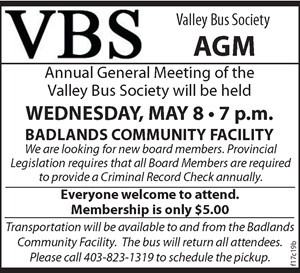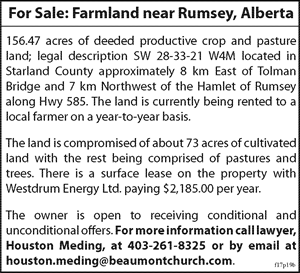
(l-r) Hayven Tucker, Alisha Hilchey, Eden Hilchey and Karis Hilchey take advantage of the summer heat and go for a float down the river.
The Red Deer River which flows through Drumheller has been an integral part of the community; it provides residents with an escape from the blazing Albertan heat, various water activities, and a peaceful view at the end of the day.
But as floaters, boaters, swimmers, and bridge jumpers take to the river this summer, safety precautions must be kept in mind.
The spring runoff from the snowy winter, in combination with heavy rainfall, could be a deadly recipe for residents seeking fun on the river. As the temperature and river flow reach higher throughout the summer months, river goers are urged to examine it closely before going in for a dip.
Shelby Augart is a certified lifeguard at the Drumheller Aquaplex and knows the dangers of unsafe waters.
“Be conscious of the current and realize that it’s different than the pool.” Augart said, “Know your limits. Educate yourself. You don’t know how dangerous things can be.”
Safety guidelines have been put in place to make sure harm doesn’t come to any wishing to cool down in the river, and these guidelines will be reinforced with fines ranging up to $287 (bridge jumping.) Other punishments affiliated with the river are; littering, $115, drinking in public $115, and if an operator of a boat appears to be intoxicated, Criminal Code charges may be laid.
Corporal Kevin Charles of the Drumheller RCMP explains that if rules are overlooked, there can be repercussions.
“It’s a public place. You can’t have any alcohol on the beach, or if you’re floating down the river on a tube. You can’t be drinking, and obviously if you’re operating a boat and you’ve been drinking, then it’s Criminal Code. It’s impaired operation of a vessel. It’s the same as if you’re drinking and driving in a car. The same rules apply for a boat,” Charles said.
The river has been, and always will be, a hot spot for the residents of Drumheller. Whether it’s to cool off or wind down from the day, residents are advised to be conscious of the dangers associated with flowing waters.





























